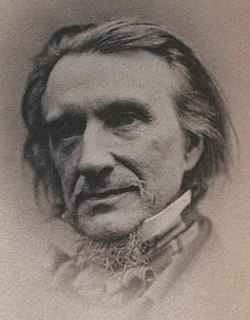A Quote by Mercy Otis Warren
But truth is most likely to be exhibited by the general sense of contemporaries, when the feelings of the heart can be expressed without suffering itself to be disguised by the prejudices of man.
Related Quotes
Propaganda must not concern itself with what is best in man - the highest goals humanity sets for itself, its noblest and most precious feelings. Propaganda does not aim to elevate man, but to make him serve. It must therefore utilize the most common feelings, the most widespread ideas, the crudest patterns, and in so doing place itself on a very low level with regard to what it wants man to do and to what end. Hate, hunger, and pride make better levers of propaganda than do love or impartiality.
Our idealists must own that their velleity to abolish all suffering is most fully expressed in the Fifth Wisdom of Lamaism, the doctrine that teaches that "no durable happiness, nor yet security, for any sentient being can exist while others are a prey to suffering." That truth cannot be questioned and you may take it to heart: in practical terms it means we got ourselves born on the wrong planet - in the wrong universe.
Without the heroic, man has no meaning; without the economic, he has no sense. Economic man is most likely to be economic woman - a good wife, pulling the coat tails of her heroic husband, checking his extravagances of speech and action with words of caution and good sense. But without the heroic coat tails to pull, life for both of them would be dull and savorless indeed.
Public opinion contains all kinds of falsity and truth, but it takes a great man to find the truth in it. The great man of the age is the one who can put into words the will of his age, tell his age what its will is, and accomplish it. What he does is the heart and the essence of his age, he actualizes his age. The man who lacks sense enough to despise public opinion expressed in gossip will never do anything great.
My feelings are not God. God is God. My feelings do not define truth. God’s word defines truth. My feelings are echoes and responses to what my mind perceives. And sometimes - many times - my feelings are out of sync with the truth. When that happens - and it happens every day in some measure - I try not to bend the truth to justify my imperfect feelings, but rather, I plead with God: Purify my perceptions of your truth and transform my feelings so that they are in sync with the truth.
Everything that is thought and expressed in words is one-sided, only half the truth; it all lacks totality, completeness, unity. When the Illustrious Buddha taught about the world, he had to divide it into Samsara and Nirvana, illusion and truth, into suffering and salvation. One cannot do otherwise, there is no other method for those who teach. But the world itself, being in and around us, is never one-sided. Never is a man or a deed wholly Samsara or wholly Nirvana; never is a man wholly a saint or a sinner. This only seems so because we suffer the illusion that time is something real.
It is no wonder if, under the pressure of these possibilities of suffering, men are accustomed to moderate their claims to happiness - just as the pleasure principle itself, indeed, under the influence of the external world, changed into the more modest reality principle -, if a man thinks himself happy merely to have escaped unhappiness or to have survived his suffering, and if in general the task of avoiding suffering pushes that of obtaining pleasure into the background.
No one suffers so much as he [the genius] with the people, and, therefore, for the people, with whom he lives. For, in a certain sense, it is certainly only "by suffering" that a man knows. If compassion is not itself clear, abstractly conceivable or visibly symbolic knowledge, it is, at any rate, the strongest impulse for the acquisition of knowledge. It is only by suffering that the genius understands men. And the genius suffers most because he suffers with and in each and all; but he suffers most through his understanding. . . .






































